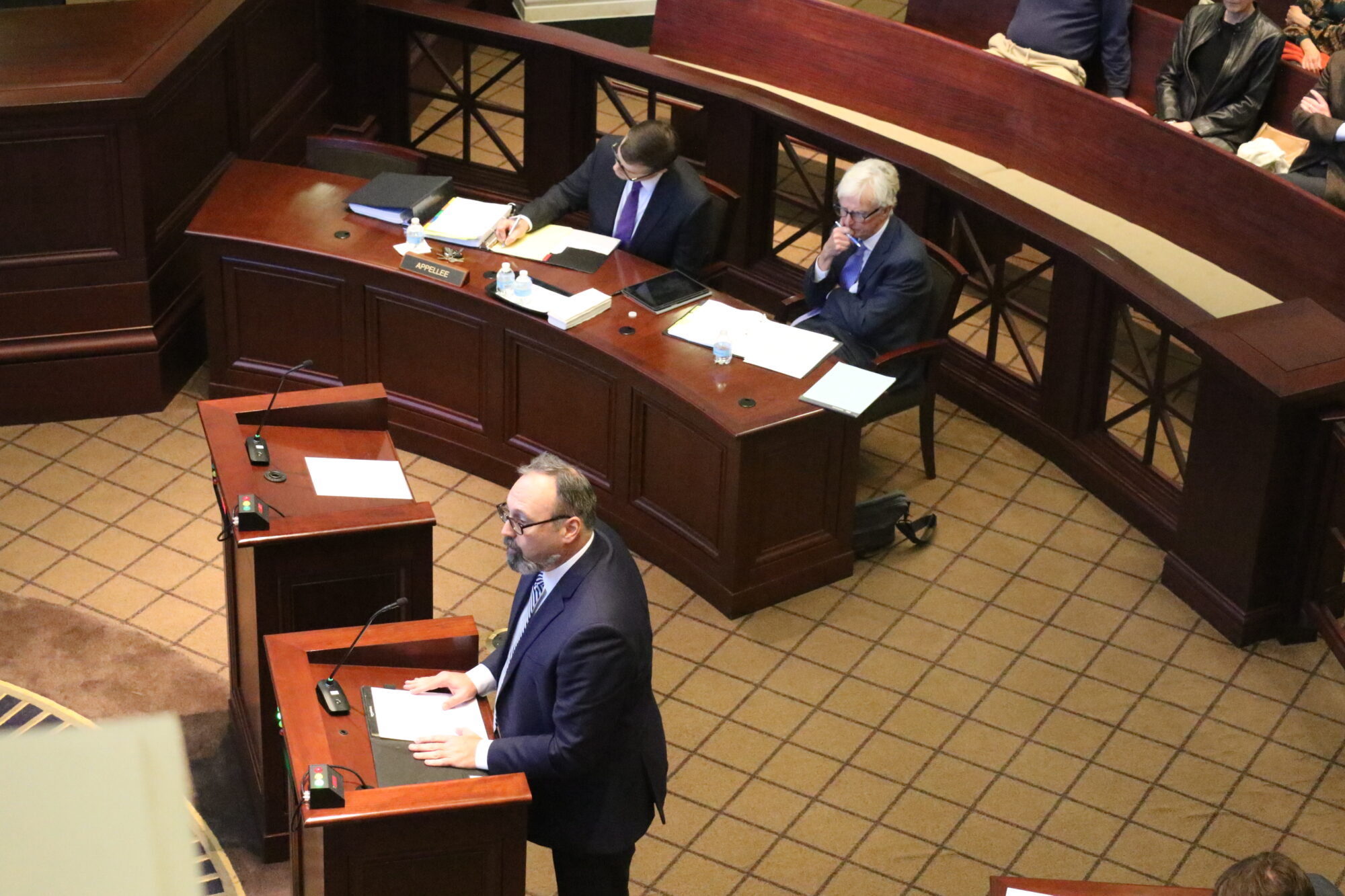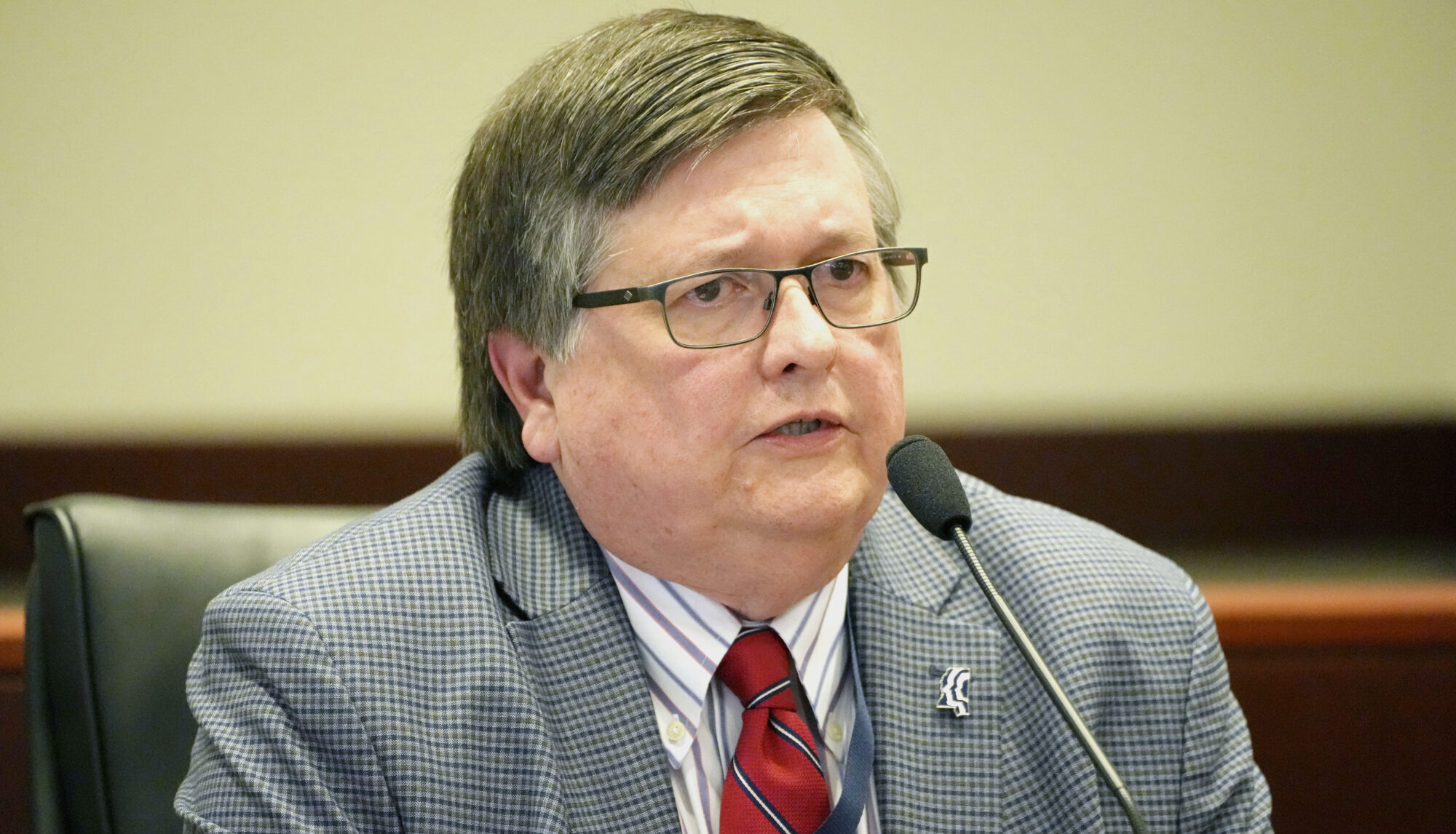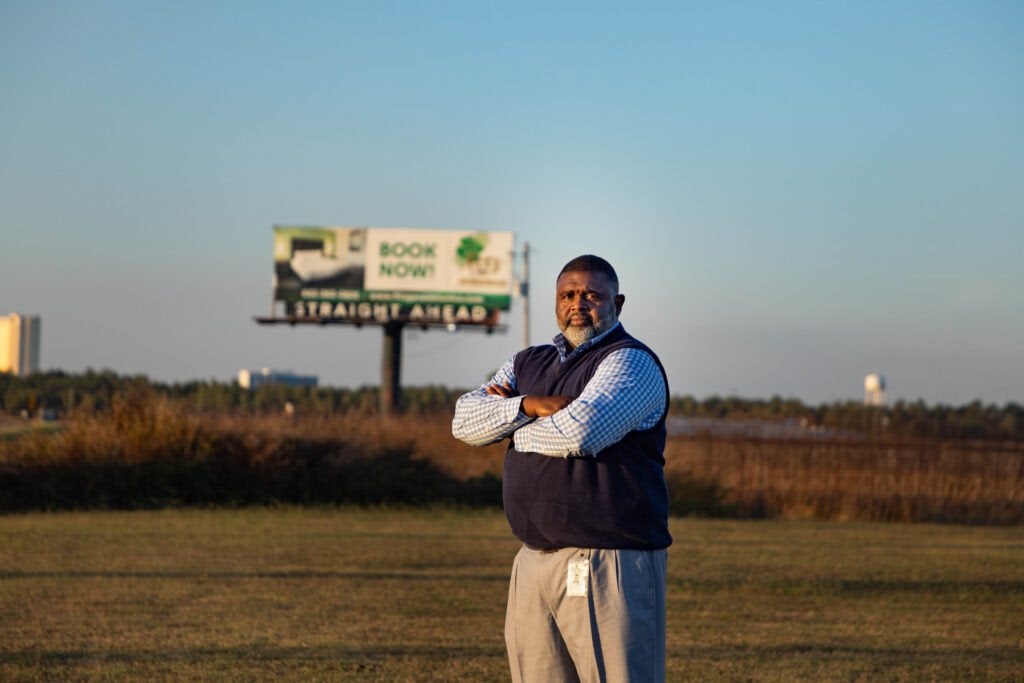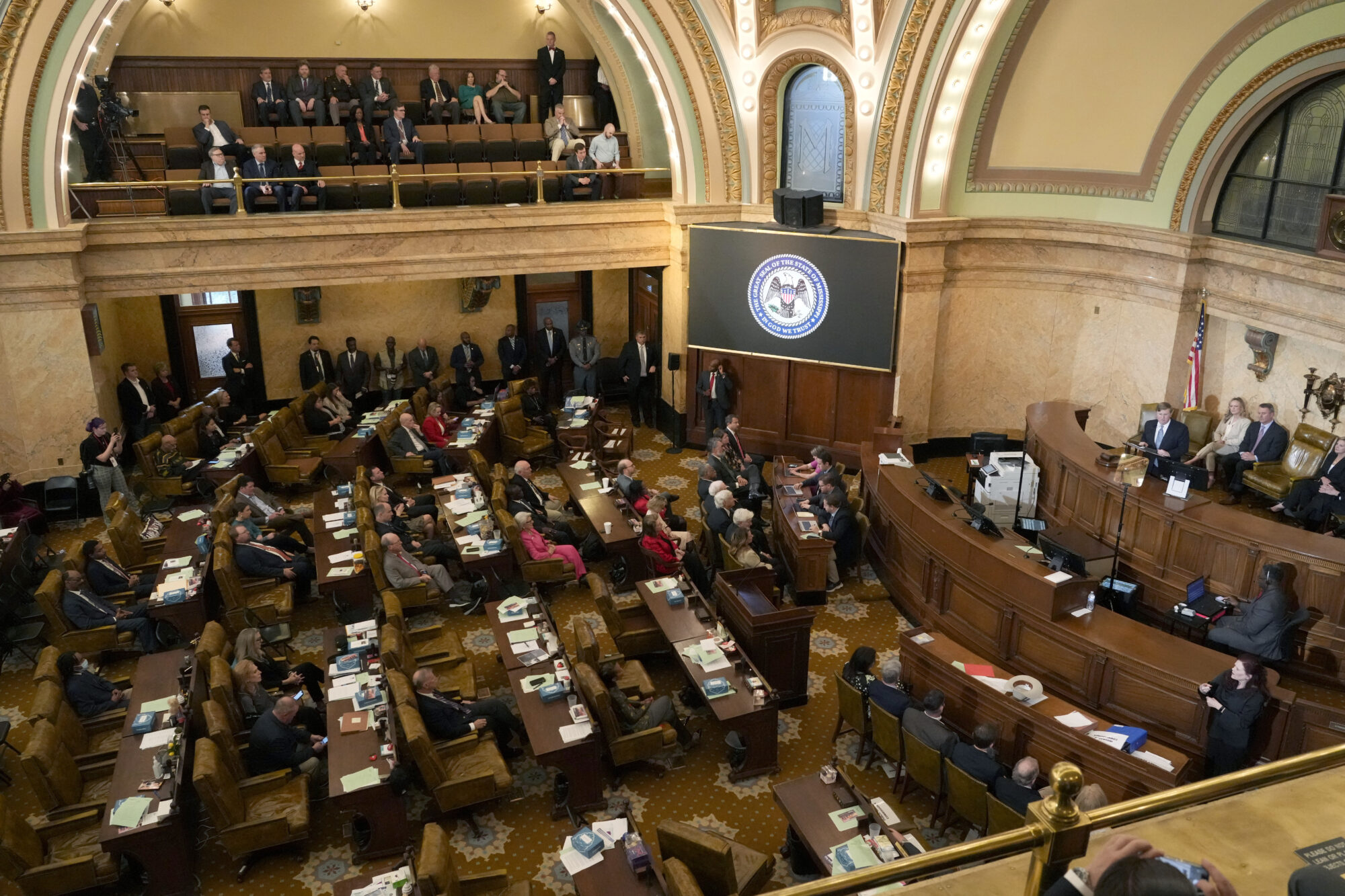
(Photo: Jeremy Pittari / Magnolia Tribune)
- Justices will decide whether a law to make $10 million in federal ARPA funds available to private schools for infrastructure updates violates the Mississippi Constitution.
The case of whether federal emergency response funding can be used for infrastructure updates by private schools is now in the hands of Mississippi’s Supreme Court.
Tuesday afternoon, justices heard oral arguments in the Parents for Public Schools vs Mississippi Department of Finance and Administration case. The appeal was filed after a Hinds County Chancery Court ruled that federal funding cannot be designated by the Mississippi Legislature for use by private schools.
After the federal government provided $1.8 billion in American Rescue Plan Act (ARPA) funds to Mississippi in response to the effects of the COVID-19 pandemic, the Legislature passed Senate Bill 2780 and SB 3064 in 2022. The bills set aside $10 million of the ARPA funds to allow private schools to apply for up to $100,000 in grants for infrastructure needs, like updating water and sewer systems.
Parents for Public Schools filed suit in response. The matter was filed in the Hinds County Chancery Court where Judge Crystal Wise Martin ruled in October 2022 that the disbursement of ARPA funds to private schools violates Sec. 208 of the Mississippi Constitution. That section of the Constitution prevents direct appropriations “to any school that at the time of receiving such appropriation is not conducted as a free school.”
On appeal, the state’s attorney, Justin Matheny from the Attorney General’s office, presented two arguments for overturning the Chancery Court’s ruling. First, Matheny contended that Parents for Public Schools did not have standing to bring its challenge. Under Mississippi law, a plaintiff must be able to show that they suffered an “adverse effect” in order to file suit. Matheny pointed to the fact that there was no evidence that the challenged expenditure reduced the sum of funding available to public schools.
In addition to the $1.8 billion in ARPA funds received by the state, Mississippi public schools received a direct federal appropriation under ARPA of over $1.627 billion.
Next, Matheny told the Court that even if there was standing, Sec. 208 was limited to direct appropriations of state funds designated for public education, and that this expenditure was not direct, not state funds, and not designated for public education. He argued that since the grant program was established using ARPA funds, and not funds set aside for education, such as ad valorem taxes, Sec. 208 of the Mississippi Constitution does not apply.
Matheny drew questions from Presiding Justice Leslie D. King on both his standing argument and his argument limiting the scope of Sec. 208. King questioned whether anyone would ever have standing to sue under Matheny’s interpretation.
The challenged legislation required any private school applying for the funding to be a member of the Midsouth Association of Independent Schools (MAIS). The schools also had to be state-accredited or accredited by a regional or national organization.
The 125 schools under MAIS serve roughly 44,000 children in the state and each school undergoes a strict auditing process, according to Buck Dougherty, Senior Counsel for Liberty Justice Center. Dougherty represented MAIS before the Supreme Court and argued that MAIS should have been allowed to intervene at the trial court level.
Dougherty also raised the question of whether Sec. 208 of the Mississippi Constitution is inconsistent with recent U.S. Supreme Court precedent striking down state constitutional provisions that prohibit funding of religious schools.
Dougherty argued that section 208 of the state’s constitution established 1890 is outdated, saying that it was established in a time when there was a different way of thinking in terms of schools not deemed public, including Catholic Schools and schools for Black residents. He reiterated that the $10 million set aside for the private school grant program was never allocated to public schools, so the program would not be taking anything away from public institutions.
Parents for Public Schools is being represented by the American Civil Liberties Union of Mississippi, the Mississippi Center for Justice, and Democracy Forward. Rob McDuff, Director of Impact Litigation at the Mississippi Center for Justice, and Will Bardwell, Senior Counsel for Democracy Forward, argued on behalf of the group.
McDuff conceded that there was not evidence the $10 million for the challenged program resulted in a reduction in funds for public schools, but argued that the damage to the interests of his client was broader than the individual appropriation. Bardwell told the Court that no challenge under Sec. 208 of the Mississippi Constitution had ever been denied standing.
Both McDuff and Bardwell argued that public funds, no matter where they are derived, are to be used only for public schools. Since federal funding comes from taxpayers, it is still public money, the attorneys contend. The attorneys drew questions from Associate Justice Robert Chamberlin on the impact of where the funds came from — federal, state or local.

After the court heard the arguments, the legal team for Parents for Public Schools held a press conference outside the courthouse.
Bardwell said this is a case about a lot more than $10 million.
“This is a case about part of Mississippi’s constitution that reserves all the state’s education funding for public schools. And if we’re going to make exceptions for that $10 million appropriation, then we can make exceptions about that for a $100 million appropriation, or $500 million appropriation. This is a simple case and it’s about a lot more than just 10 million dollars,” Bardwell said.
McDuff agreed, saying he is hopeful for a favorable decision by the court.
“Back in 1890, money was being spent on private schools over and over again and the framers of the 1890 constitution made provision Section 208 to prevent public money from going to private schools and ensure it went only to public schools. That’s the principle that we’re trying to uphold today,” McDuff said. “The court listened to our arguments, and they seemed attentive, and we are hoping it’s going to be a favorable decision and that public money will go to public schools as required by the Mississippi Constitution.”
The two attorneys say they are protecting the line in the sand established by the state’s constitution.
“Whether that money is fixing the school building or providing education resources, the principle is the same. If there is any public money that’s going to go to schools, it’s going to public schools,” McDuff elaborated.
Becky Glover, policy analyst for Parents for Public Schools, shared a similar sentiment.
“Only public schools are accountable to taxpayers and to the parents and to the community as a whole. So, we depend on and desperately need well-funded public schools in Mississippi,” Glover told the press.
A decision by the Supreme Court was not issued Tuesday.









